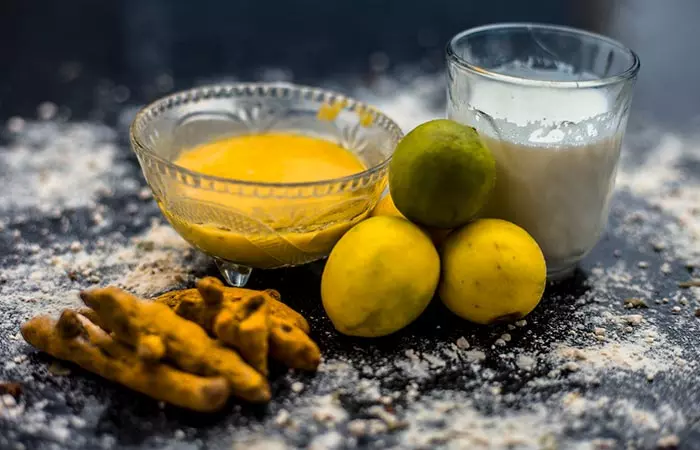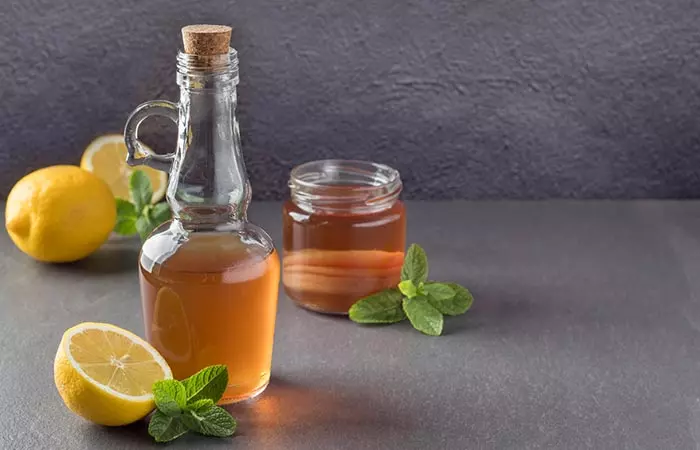Introduction
Welcome to Wellhealthorganic, your go-to destination for natural skincare solutions. In this article, we’ll explore the power of lemon juice in removing dark spots and achieving a brighter, more radiant complexion.
Understanding Dark Spots
Delve into the causes of dark spots, including sun exposure, hormonal changes, aging, and skin injuries. Discuss the impact of dark spots on self-esteem and the desire for effective, natural solutions.
Benefits of Lemon Juice for Skin
- Natural Bleaching Agent: Highlight lemon juice’s natural bleaching properties, thanks to its high concentration of citric acid, which can lighten dark spots and even out skin tone.
- Rich in Vitamin C: Discuss the abundance of vitamin C in lemon juice, known for its antioxidant properties that help protect the skin from free radical damage and promote collagen production.
- Exfoliating Action: Explain how the citric acid in lemon juice acts as a gentle exfoliant, sloughing off dead skin cells and revealing brighter, smoother skin underneath.
How to Use Lemon Juice for Dark Spots
- Direct Application: Describe the process of applying freshly squeezed lemon juice directly to dark spots using a cotton ball or fingertip. Emphasize the importance of diluting lemon juice with water for sensitive skin.
- Lemon Juice Mask: Share a recipe for a DIY lemon juice mask, combining lemon juice with other skin-brightening ingredients like honey, yogurt, or turmeric for added benefits.
- Spot Treatment: Discuss targeted spot treatment techniques, such as dabbing lemon juice onto individual dark spots with a cotton swab or Q-tip for precise application.
Precautions and Considerations
- Skin Sensitivity: Caution readers about the potential for skin irritation or sensitivity when using lemon juice, especially on sensitive or broken skin.
- Sun Sensitivity: Advise against sun exposure immediately after applying lemon juice, as it can increase the skin’s sensitivity to sunlight and potentially cause sunburn.
- Patch Test: Recommend performing a patch test on a small area of skin before using lemon juice on larger areas to check for any adverse reactions.
Incorporating Wellhealthorganic Products
- Organic Skincare Products: Introduce Wellhealthorganic’s range of organic skincare products, formulated with natural ingredients to nourish and rejuvenate the skin while complementing lemon juice treatments.
- Moisturizers and Serums: Highlight Wellhealthorganic’s moisturizers and serums, enriched with hydrating and skin-brightening ingredients to enhance the results of lemon juice treatments.
- Sun Protection: Emphasize the importance of sun protection in preventing further dark spot formation and recommend Wellhealthorganic’s sunscreen products for daily use.
Tips for Optimal Results
- Consistency: Stress the importance of consistency in using lemon juice treatments, as results may take time to become noticeable.
- Hydration: Encourage readers to stay hydrated and maintain a healthy skincare routine to support the skin’s natural healing process.
- Patience: Remind readers to be patient and persistent in their skincare efforts, as dark spot removal is a gradual process that requires time and dedication.
1. Turmeric And Lemon Juice
Image: IStock
Turmeric can enhance the complexion. A study showed that the topical application of a moisturizing cream containing Tumeric extract reduced the appearance of facial spots, fine lines, and wrinkles on human facial skin.
You Will Need
- 1 teaspoon of turmeric powder
- 1/2 teaspoon of lemon juice
- 1 tablespoon of milk
What You Have To Do
- Mix all the ingredients to get a thin paste.
- Apply the paste to the affected areas and let it dry for about 10 minutes.
- Wash your face with lukewarm water.
How Often You Should Do This
Use this pack 2-3 times a week.
2. Coconut Oil And Lemon Juice
The antioxidants present in coconut oil reduce the skin damage caused by sunlight and pollution. Coconut oil also protects the skin from UV radiation and improves skin barrier function. The oil also moisturizes the skin and hydrates it.
You Will Need
- 2-3 drops of coconut oil
- 2-3 drops of lemon juice
What You Have To Do
- Mix both the ingredients and massage the affected area with the mixture.
- Let it sit for 20-25 minutes.
- You can either rinse it off with tepid water or use a soft napkin dipped in warm water to wipe it off.
How Often You Should Do This
Repeat this once every day.
3. Apple Cider Vinegar And Lemon Juice
Image: IStock
Apple cider vinegar is believed to have toning and exfoliating properties. They may help slough off the cells on the skin surface, lightening the dark spots.
You Will Need
- 1/2 teaspoon of apple cider vinegar
- 1/2 teaspoon of lemon juice
- 1 tablespoon of water
- Cotton ball
What You Have To Do
- Mix the vinegar and lemon juice with water.
- Dip the cotton ball in this liquid mixture and apply it to the dark spots.
- Leave it on for 8-10 minutes and then rinse it off.
How Often You Should Do This
Do this a few times every week until the dark spots fade away.
4. Parsley And Lemon Juice
Parsley, like lemon juice, is rich in vitamin C. It may play a role in lightening dark spots on the face . In another study, parsley was found to be equally effective in reducing dark spots as hydroquinone cream .
You Will Need
- 1 cup of chopped parsley
- 2 cups of water
- 1 tablespoon of lemon juice
- Cotton ball
What You Have To Do
- Add the chopped parsley to a teapot with the water. Boil for 15 minutes.
- Strain the infusion of parsley and add lemon juice to it.
- Let the liquid cool. Apply it to the dark spots using the cotton ball.
- Leave it on for around 30 minutes and then rinse with plain water.
- Refrigerate the leftover parsley and lemon juice infusion.
How Often You Should Do This
Apply it daily to your face to lighten the brown or dark spots.
5. Cucumber And Lemon Juice
Image: IStock
Cucumber contains antioxidants and silica that help in the gradual lightening of the dark spots. The fruit may also rejuvenate your skin.
You Will Need
- 1 tablespoon of cucumber juice
- 1 teaspoon of lemon juice
- 1/2 teaspoon of honey
What You Have To Do
- Extract fresh cucumber juice and add lemon juice and honey to it. Mix well.
- Apply the mixture to the dark spots and let it sit for 10 minutes.
- Wash it off with water.
How Often You Should Do This
Do this 1-2 times a day.
6. Olive Oil And Lemon Juice
If you have freckles or age spots caused due to prolonged exposure to UV rays, olive oil can help. In a study, the SPF (sun protection factor) of olive oil was found to be the highest among the oils tested .
You Will Need
- 1/2 teaspoon of olive oil
- 1/2 teaspoon of lemon juice
What You Have To Do
- Mix the oil with the lemon juice and apply to the dark spots.
- Leave it on for 10-15 minutes and then rinse off with water.
How Often You Should Do This
Repeat this 2 times a day.
7. Yogurt And Lemon Juice
Studies show that facial masks containing yogurt may help in skin brightening and provide moisture. This may help lighten dark spots over time, though more research is warranted.
You Will Need
- A few drops of lemon juice
- 3-4 tablespoons of plain yogurt
What You Have To Do
- Apply lemon juice to the dark spots and let it dry.
- Apply the yogurt on top of the dried lemon juice and cover the dark spots.
- Leave the yogurt on for 10 minutes and then wash it off.
How Often You Should Do This
Do this once daily.
8. Tomato Juice And Lemon Juice
Tomato contains lycopene and beta-carotene, antioxidants that are known to protect the skin from sun damage.
You Will Need
- 1 teaspoon of tomato juice
- 1 teaspoon of lemon juice
What You Have To Do
- Mix the two juices and apply the mixture to the dark spots.
- Leave this on for 10 minutes.
- Rinse off with water.
- Pat dry and apply a suitable moisturizer.
How Often You Should Do This
Do this once daily.
Conclusion
By harnessing the natural bleaching and exfoliating properties of lemon juice and incorporating Wellhealthorganic products into your skincare routine, you can effectively diminish dark spots and achieve a luminous, even-toned complexion. Say goodbye to dark spots and hello to radiant, glowing skin with the power of lemon juice and Wellhealthorganic.



